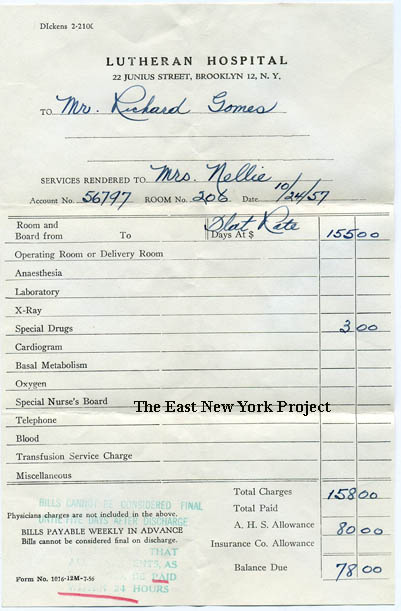 “Within individual communities, prices vary widely, even after accounting for differences in the complexity of services provided. The highest-priced hospital typically is paid 60 percent more for the same inpatient services than the lowest-priced hospital. The price gap within markets is even greater for hospital outpatient services, with the highest-priced hospital typically paid nearly double the lowest-priced hospital, according to the study.”
“Within individual communities, prices vary widely, even after accounting for differences in the complexity of services provided. The highest-priced hospital typically is paid 60 percent more for the same inpatient services than the lowest-priced hospital. The price gap within markets is even greater for hospital outpatient services, with the highest-priced hospital typically paid nearly double the lowest-priced hospital, according to the study.”
Prices for Privately Insured Patients Vary Widely from Hospital to Hospital and Market to Market
News Release
Sept. 5, 2013
FURTHER INFORMATION, CONTACT: Alwyn Cassil (202) 264-3484 or acassil@hschange.org
WASHINGTON , DC—Across 13 selected U.S. metropolitan areas, hospital prices for privately insured patients—especially for outpatient care—are much higher than Medicare and vary widely within and across communities, according to a new study by the Center for Studying Health System Change (HSC) for the nonpartisan, nonprofit National Institute for Health Care Reform (NIHCR).
Based on claims data for 590,225 active and retired nonelderly autoworkers and their dependents, the study found that average hospital prices for privately insured patients in the 13 communities with large concentrations of autoworkers are about one-and-a-half times Medicare rates for inpatient care and two times what Medicare pays for outpatient services.
Within individual communities, prices vary widely, even after accounting for differences in the complexity of services provided. The highest-priced hospital typically is paid 60 percent more for the same inpatient services than the lowest-priced hospital. The price gap within markets is even greater for hospital outpatient services, with the highest-priced hospital typically paid nearly double the lowest-priced hospital, according to the study.
“The dramatic variation in prices from one hospital to another points to the significant market power of certain hospitals to command high prices, even in markets with a dominant insurer,” said Chapin White, Ph.D., an HSC senior researcher and coauthor of the study with Amelia M. Bond. M.H.S., a former HSC research analyst; and HSC Senior Fellow James D. Reschovsky, Ph.D.
In contrast to hospital prices, prices for primary care physician services generally are close to Medicare rates and vary little within markets, the study found. Prices for specialist physician services, however, are higher relative to Medicare and vary more within and across markets.
The study’s findings are detailed in a new HSC Research Brief—High and Varying Prices for Privately Insured Patients Underscore Hospital Market Power—available here. The study is the first to examine variation of individual hospital’s prices at the market level.
The study included the following metropolitan areas: Ann Arbor, Mich.; Buffalo, N.Y.; Cleveland; Detroit; Flint, Mich.; Indianapolis; Kansas City; Kokomo, Ind.; Lansing, Mich.; St. Louis; Toledo, Ohio; Warren, Mich.; and Youngstown, Ohio.
To compare prices paid by the autoworker plan with Medicare prices, five categories of services were examined: hospital inpatient care, hospital outpatient services, primary care physician services, medical specialty physician services and surgical specialty physician services.
- Hospital inpatient care. The average prices for inpatient hospital care paid by the autoworker plan ranged from about 25 percent higher in Youngstown to more than double Medicare rates in Kansas City. The gap between the highest- and lowest-priced hospital in each market is typically about 60 percent but is even more extreme in certain markets, such as Kansas City, Cleveland and Toledo. In each of these markets, the highest-priced hospital is paid well above twice as much as the lowest-priced hospital for inpatient services.
- Hospital outpatient services. The average prices paid by the autoworker plan for hospital outpatient services ranged from about 25 percent higher than Medicare rates in Lansing to more than three times Medicare rates in Indianapolis and Kokomo. The price gap for outpatient services varied even more widely across and within communities than for inpatient care. Typically, the highest-priced hospital in a market was paid nearly twice as much for outpatient services as the lowest-priced hospital. For example, the most expensive Cleveland hospital was paid outpatient prices three times as high as the least expensive hospital. But, wide variation in outpatient prices appears in almost all of the markets.
- Primary care physician services. Prices for physician primary care services tend to be much closer to Medicare—and, in some cases, below—and they vary less within and across markets. In almost all 13 markets, the prices paid to primary care practices fall in a narrow range, typically between 85 percent and 135 percent of Medicare. Four markets—Cleveland, St. Louis, Indianapolis and Kansas City—have wider primary care price variation, with a few primary care practices receiving prices well above Medicare.
- Medical and surgical specialty physician services. Prices for medical specialty services and surgical specialty services vary more widely than primary care and tend to be higher relative to Medicare. Specialty price indexes generally ranged from below 1.0—less than Medicare—to 1.5 or even higher. Two markets—Cleveland and St. Louis—stand out because highly reimbursed specialty practices receive prices 50 percent or more above the median price in the markets.
“While the findings suggest some opportunities for savings, even capping hospital and physician prices at the median within each market would only reduce spending by 5.5 percent. Achieving significant savings requires not only bringing high-priced providers closer to the average, but also bringing down the average, which would likely require fundamental changes to providers’ cost structures,” the study concludes.
| ### ### |
The Center for Studying Health System Change is a nonpartisan policy research organization committed to providing objective and timely research on the nation’s changing health system to help inform policy makers and contribute to better health care policy. HSC, based in Washington, D.C., is affiliated with Mathematica Policy Research.

